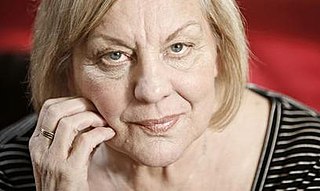A Quote by Mary Kay Andrews
I wanted a garret hideaway to write in like Jo March in 'Little Women.'
Related Quotes
My first and most loved real novel was 'Little Women.' I identified with the Jo character even though we were opposites. Jo was very strong-minded and brave, and I was shy and kind of a wuss, everyplace but in my own home. I wanted to be Jo. She was my alter ego. I think reading that book gave me courage.
When Jo's conservative sister Meg says she must turn up her hair now that she is a "young lady," Jo shouts, "I'm not! and if turning up my hair makes me one, I'll wear it in two tails till I'm twenty.... I hate to think I've got to grow up, and be Miss March, and wear long gowns, and look as prim as a China aster! It's bad enough to be a girl anyway, when I like boys' games and work and manners! I can't get over my disappointment in not being a boy; and it's worse than ever now, for I'm dying to go and fight with Papa, and I can only stay at home and knit, like a poky old woman.
As a little kid, not only is my dad Jo-Jo White, but M. L. Carr is involved in the family, Red Auerbach is my godfather, and my stepmother was an Olympic-caliber sprinter. Athletes were all around. I happened to be a natural athlete. If I wasn't, it might have been hell. But I never got any pressure from my mom and dad to be an athlete.


































